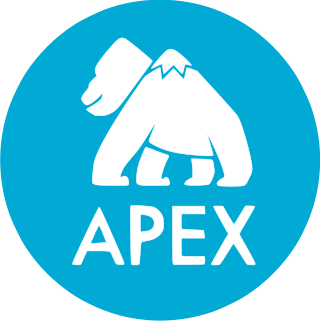
Jakarta EE, formerly Java Platform, Enterprise Edition and Java 2 Platform, Enterprise Edition (J2EE), is a set of specifications, extending Java SE with specifications for enterprise features such as distributed computing and web services. Jakarta EE applications are run on reference runtimes, which can be microservices or application servers, which handle transactions, security, scalability, concurrency and management of the components they are deploying.

GlassFish is an open-source Jakarta EE platform application server project started by Sun Microsystems, then sponsored by Oracle Corporation, and now living at the Eclipse Foundation and supported by Payara, Oracle and Red Hat. The supported version under Oracle was called Oracle GlassFish Server. GlassFish is free software and was initially dual-licensed under two free software licences: the Common Development and Distribution License (CDDL) and the GNU General Public License (GPL) with the Classpath exception. After having been transferred to Eclipse, GlassFish remained dual-licensed, but the CDDL license was replaced by the Eclipse Public License (EPL).

OpenStack is a free, open standard cloud computing platform. It is mostly deployed as infrastructure-as-a-service (IaaS) in both public and private clouds where virtual servers and other resources are made available to users. The software platform consists of interrelated components that control diverse, multi-vendor hardware pools of processing, storage, and networking resources throughout a data center. Users manage it either through a web-based dashboard, through command-line tools, or through RESTful web services.
cgroups is a Linux kernel feature that limits, accounts for, and isolates the resource usage of a collection of processes.

Ion Stoica is a Romanian–American computer scientist specializing in distributed systems, cloud computing and computer networking. He is a professor of computer science at the University of California, Berkeley and co-director of AMPLab. He co-founded Conviva and Databricks with other original developers of Apache Spark.

OpenShift is a family of containerization software products developed by Red Hat. Its flagship product is the OpenShift Container Platform — a hybrid cloud platform as a service built around Linux containers orchestrated and managed by Kubernetes on a foundation of Red Hat Enterprise Linux. The family's other products provide this platform through different environments: OKD serves as the community-driven upstream, Several deployment methods are available including self-managed, cloud native under ROSA, ARO and RHOIC on AWS, Azure, and IBM Cloud respectively, OpenShift Online as software as a service, and OpenShift Dedicated as a managed service.
Docker is a set of platform as a service (PaaS) products that use OS-level virtualization to deliver software in packages called containers. The service has both free and premium tiers. The software that hosts the containers is called Docker Engine. It was first released in 2013 and is developed by Docker, Inc.
Matei Zaharia is a Romanian-Canadian computer scientist, educator and the creator of Apache Spark.

Apache Spark is an open-source unified analytics engine for large-scale data processing. Spark provides an interface for programming clusters with implicit data parallelism and fault tolerance. Originally developed at the University of California, Berkeley's AMPLab, the Spark codebase was later donated to the Apache Software Foundation, which has maintained it since.
Kubernetes is an open-source container orchestration system for automating software deployment, scaling, and management. Originally designed by Google, the project is now maintained by the Cloud Native Computing Foundation.

Databricks, Inc. is an American software company founded by the creators of Apache Spark. Databricks develops a web-based platform for working with Spark, that provides automated cluster management and IPython-style notebooks. The company develops Delta Lake, an open-source project to bring reliability to data lakes for machine learning and other data science use cases.
PerfKit Benchmarker is an open source benchmarking tool used to measure and compare cloud offerings. PerfKit Benchmarker is licensed under the Apache 2 license terms. PerfKit Benchmarker is a community effort involving over 500 participants including researchers, academic institutions and companies together with the originator, Google.

Ali Ghodsi is an Iranian-Swedish AI leader, computer scientist and entrepreneur specializing in distributed systems and big data. He is a co-founder and CEO of Databricks and an adjunct professor at UC Berkeley. Ideas from his academic research in the area of resource management and scheduling and data caching have been applied in popular open source projects such as Apache Mesos, Apache Spark, and Apache Hadoop.

Apache Apex is a YARN-native platform that unifies stream and batch processing. It processes big data-in-motion in a way that is scalable, performant, fault-tolerant, stateful, secure, distributed, and easily operable.
Reynold Xin is a computer scientist and engineer specializing in big data, distributed systems, and cloud computing. He is a co-founder and Chief Architect of Databricks. He is best known for his work on Apache Spark, a leading open-source Big Data project. He was designer and lead developer of the GraphX, Project Tungsten, and Structured Streaming components and he co-designed DataFrames, all of which are part of the core Apache Spark distribution; he also served as the release manager for Spark's 2.0 release.
Borg is a cluster manager used by Google. It led to widespread use of similar approaches, such as Docker and Kubernetes.
Haoyuan (H.Y.) Li is a computer scientist and entrepreneur specializing in distributed systems, big data, and cloud computing. He is best known for proposing Virtual Distributed File System (VDFS), and creating an open-source data orchestration system, Alluxio. He is the Founder, Chairman, and CEO of Alluxio, Inc, a company commercializing the Alluxio Data Orchestration Technology. He is also an adjunct professor at Peking University. He is a frequent speaker on the topic of AI, Big Data, Cloud Computing, and Open Source at conferences.

CBL-Mariner is a free and open-source Linux distribution that Microsoft has developed. It is the base container OS for Microsoft Azure services and the graphical component of WSL 2.
HammerDB is an open source database benchmarking application developed by Steve Shaw. HammerDB supports databases such as Oracle, SQL Server, Db2, MySQL and MariaDB. HammerDB is written in TCL and C, and is licensed under the GPL v3.











